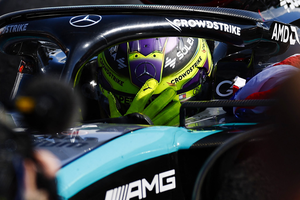New Delhi: Mercedes team principal Toto Wolff, who had sensed the possibility of Lewis Hamilton’s exit, has revealed the driver’s decision brought mixed emotions as he reflected on both their successful partnership and the realities of an evolving F1 landscape.
Seven-time world champion Lewis Hamilton announced his departure from Mercedes to join Ferrari from the 2025 season. Hamilton, 39, had initially appeared committed to finishing his career with Mercedes, repeatedly expressing his dedication to the team. However, in 2023, he signed a “one plus one year” contract, a structure that contained an escape clause allowing him the freedom to leave if he desired.
In February 2024, Hamilton activated the clause, opting for a multi-year contract with Ferrari beginning in 2025. The decision sent shockwaves through the paddock, with Wolff admitting that while the move was “on his radar,” he didn’t fully expect it to come to fruition.
The switch not only positions Hamilton at Ferrari, taking the seat of Carlos Sainz but also leaves a key vacancy at Mercedes. Wolff decided to seize this as an opportunity to invest in youth, offering the seat to 18-year-old Andrea Kimi Antonelli, a rising star who represents Mercedes’ future ambitions.
Reflecting on the timing and terms of Hamilton’s contract, Wolff revealed insights into Mercedes’ strategy and the difficult balancing act of managing an elite driver’s career. In Matt Whyman’s new book, ‘Inside Mercedes F1: Life in the Fast Lane’, Wolff shared, “I like the situation… it avoids the moment where we need to tell the sport’s most iconic driver that we want to stop.”
He elaborated on his reasoning, noting that while Hamilton remains one of F1’s sharpest talents, age and cognitive performance inevitably come into play.
“We’re in a sport where cognitive sharpness is extremely important, and I believe everyone has a shelf life. So, I need to look at the next generation,” Wolff explained.
For Wolff, the first signs of Hamilton’s potential departure came indirectly. Just two weeks before Hamilton’s formal announcement, rally legend Carlos Sainz Sr., father of the Ferrari driver, called Wolff with subtle hints about potential changes. This was followed by unusual calls from drivers expressing interest in joining Mercedes, leaving Wolff increasingly aware that “something was going on.” When a text to Ferrari boss Fred Vasseur about “taking our driver” went unanswered, Wolff’s suspicions were confirmed.
The official news came when Hamilton visited Wolff’s home in Oxfordshire, England, for a meeting. They chatted casually, discussing holidays and the off-season, but Wolff sensed Hamilton had something important to say. “We’re recruiting from Ferrari now, we’ve got this guy,” Wolff joked, to which Hamilton replied, “Ooh, there’s something I need to tell you.” In that moment, Wolff recalled, he understood that the “unthinkable” was happening. Though taken aback, Wolff immediately shifted gears. “Instantly, it’s, OK, what are we doing with this? There is always opportunity.”
Hamilton’s choice was also influenced by Mercedes’ recent struggles and Ferrari’s resurgence. Mercedes has faced declining performance in the latter half of the season, with Hamilton calling his recent tenth-place finish in Sao Paulo a “disaster.” Ferrari, on the other hand, has seen a late-season revival, winning two of the last three races and mounting a significant challenge for the constructors’ championship. With Hamilton’s own results slipping, the appeal of Ferrari’s upward trajectory grew stronger.
Hamilton’s decision marks the end of an era for Mercedes but paves the way for a fresh approach. As Wolff concluded in the book, “This is the nature of Formula 1, a sport where only forward-thinking wins.”
–IANS


Comments are closed.